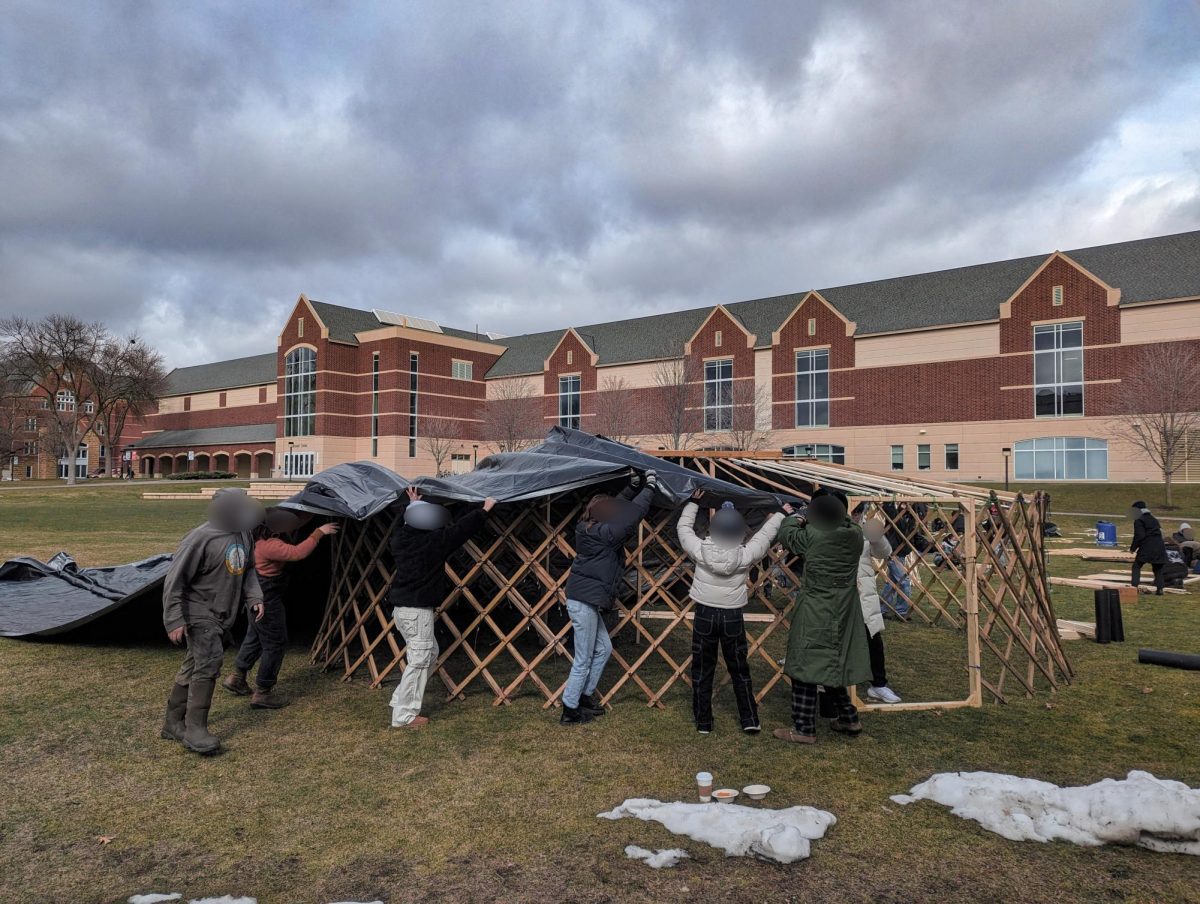A town hall will be held at noon on Thursday, April 23 in Weyerhauser Boardroom to discuss the future of non-tenure track faculty at Macalester. This open forum has been scheduled largely in response to events that have taken place over the last year. It will be guided in part by a report by the Resources and Planning Committee (RPC), “Supporting Non-Tenure Track Faculty at Macalester,” which was completed at the beginning of this semester.
The report was written at the behest of the administration, in response to the push for unionization of contingent faculty that occurred on campus last spring. Although the union later cancelled a vote that had been planned, non-tenure track faculty had established their demand for a change. By the fall semester, the RPC had been called upon to survey the faculty and complete a report of “best practices” for the administration’s treatment of non-tenure track faculty. The report was completed with the assistance of ex officio members of the RPC, such as Director of Institutional Research Polly Fassinger; Provost Kathy Murray; and Assistant Provost, Lynn Hertz.
Those best practices, addressed to the Provost, Faculty Personnel Committee (FPC) and Educational Policy and Governance Committee (EPAG), include the creation of an information website for non-tenure track faculty, the development of more specific titles for those faculty, voting rights, salary benefits, and a clearer establishment of criteria for evaluation and promotion. The recommendations are based on examinations of faculty at colleges similar to Macalester in terms of titles, salaries and roles within their college communities. Throughout the report, the American Association of University Professors (AAUP) is frequently cited.
There are three appendices to the report, two of which are collections of information from the AAUP website: one is about contingent faculty, the other about institutional regulations of academic freedom and tenure. Appendix C is the results of a survey about attitudes toward non-tenure track faculty, first presented at a faculty meeting in October 2014. The survey shows that while non-tenure faculty feel they are generally treated well by fellow faculty and the administration, there is greater deliberation over titles, future priorities, part-time eligibility for service, and communication-related clarity among faculty and administrators on campus.
“The report was essentially requested by the administration,” Lucy Westerfield ’15, one of two student representatives in the FPC who aided in the construction of the report by gathering data from other colleges, said. “This isn’t something the administration wanted to do as a symbolic gesture.”
Westerfield encouraged students to attend the town hall in order to learn more about issues non-tenure track faculty have faced.
Britt Abel, a professor of German studies at Macalester, was selected to serve on the RPC last semester as one of two non-tenure track faculty along with Marianne Milligan of the linguistics and environmental studies departments. Abel and Milligan contributed to the progress of the report last semester, and provided input at the beginning of this semester during the report’s finalization.
Referring to the events that followed last spring’s cancelled vote, Abel believes that the discomfort surrounding the topic of non-tenure track faculty on campus emerged from the unionization drive last spring.
“There were some messages sent out that tenure track faculty had to be careful talking with non-tenure track faculty [before the vote],” Abel said. “But [the cancellation] was in the summer, and there wasn’t really a chance to clear the air. So one of the things I thought was interesting that the survey [Appendix C of the report] found was that people still don’t feel entirely comfortable talking about some of these issues.”
Abel appreciates that in the RPC report, there is a distinction between long-term and short-term faculty positions, rather than what she says has been a breakdown between part-time and full-time faculty in the past.
“It seems like such a little thing, but it’s a really big thing,” Abel said of titles like ‘Visiting Professor,’ which have been given to long-term non-tenure track faculty. “This is a problem because these people are not visiting. And it’s a problem when they’re writing letters of recommendation for students and their letter gets read differently because of the title. What kind of title can we come up with for people who are long-term here at Macalester that can represent that relationship to the College, and that then don’t adversely affect our students when we’re writing in support of them at conferences or applying for grants or things like that?”
In terms of implementation of the report’s recommendations, committees appear to be in the initial stages of change. There may be discussion of titles at the faculty meeting in May, FPC co-chairs Dan Hornbach (environmental studies) and Julie Rogers (French and Francophone studies) said in an interview. The RPC and the FPC met at the beginning of the semester to discuss and explain report recommendations. Some members of the FPC have also met with a group of non-tenure track faculty in the Jan Serie Center for Scholarship and Teaching, a regular non-tenure track meeting place. Joan Ostrove, a professor of psychology and member of the FPC, said that the committee is working on developing titles which “will be intended to better reflect both the nature of the work that non-tenure track faculty do and their length of service at Macalester.” They are also developing sets of criteria that non-tenure track faculty may require in the event that their positions someday allow them to move from one rank to another.
The RPC has also had conversations with EPAG, who will be responsible for making recommendations to change the faculty handbook, specifically faculty voting rights. However, voting rights cannot be asserted until the question of faculty titles has been decided, and EPAG is currently addressing other committee concerns.
Both Hornbach and Rogers also emphasized the importance of titles.
“The non-tenure track faculty are not just ‘visiting’ for 30 years,” Rogers said. “They are valued, have a promotion ladder, a way to improve themselves, and also to gain recognition.”
Rogers expressed that, in recent years, she has seen a spreading of awareness among the faculty in her department of non-tenure track issues, and believes that the town hall will assist in continuation of the conversation. “The people who are non-tenure track probably contribute just as much in the department, so I think this recognition piece is really important,” she added.
“I think the recognition part is really what has changed over the past ten years, that the College really is trying to very clearly say, ‘We value the work that you do, and we need to be responsive to that in ways that we maybe haven’t been as responsive in the past,’” Hornbach added. “So I think that comes in terms of higher salaries, and titles, and a recognition of a lot of the work that non-tenure track faculty do outside of the classroom.














Warren Dyer • Sep 6, 2019 at 5:36 pm
Thank you for every other informative blog. Where else could I get that kind of information written in such a perfect way? I have a project that I am just now working on, and I’ve been at the look out for such information.